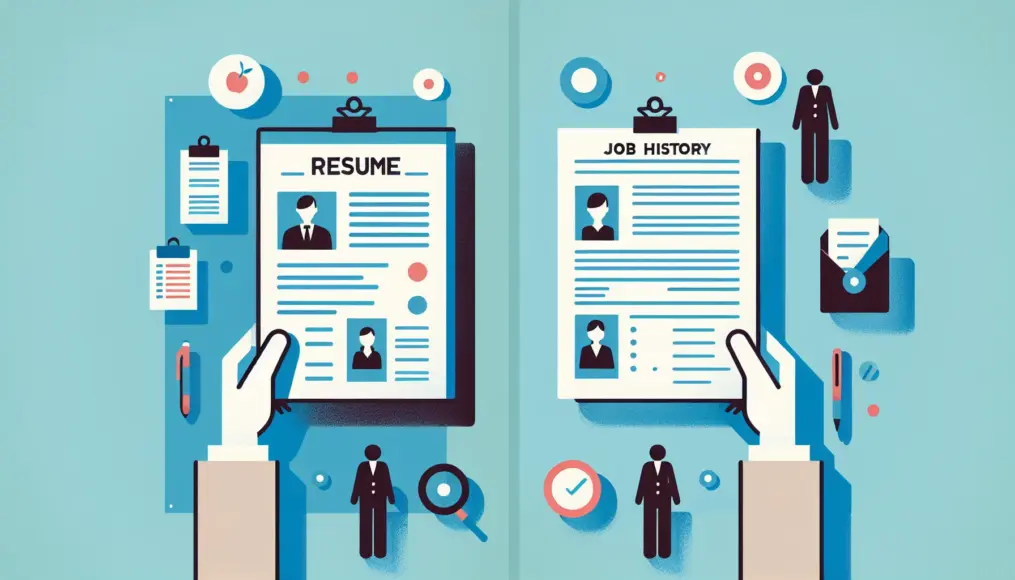Interviews are crucial opportunities to showcase who you are. However, many people often feel anxious when it comes to articulating their thoughts effectively. In this article, we’ll provide you with a practical guide to mastering your responses during interviews. By understanding the intent behind each question and learning how to communicate your strengths clearly, you’ll be able to approach your interviews with confidence.
Additionally, grasping the common questions you might face and gaining insight into the psychology of interviewers will help you respond more effectively. As you build your career, it’s essential to prepare thoroughly for interviews. Take this first step toward success by reading on!
- Learn the basics of responding during interviews
- Discover effective ways to answer common questions
- Understand key insights into the interviewer’s mindset
The Basics of Responding in an Interview
Interviews are a crucial opportunity to showcase your skills and fit for a position. However, how you respond can be the key to your success. In this section, we’ll explore the fundamental principles of responding in an interview, particularly focusing on how to interpret the intent behind questions and effectively communicate your strengths.
Interviewers are not just looking for answers; they want to understand your thought process and values. Therefore, it’s essential to grasp the intent behind the questions and prepare answers that align with that understanding. To effectively highlight your strengths, sharing specific anecdotes or accomplishments is particularly impactful. Let’s dive into how you can master these techniques.
Understanding the Intent Behind Questions
To succeed in your interview responses, it’s vital to comprehend the underlying intent of the questions. By considering what the interviewer wants to know and what information they are seeking, you can provide more precise answers. For instance, when asked to introduce yourself, this is not merely a chance to recount your background; it’s an opportunity to convey the value you bring.
Additionally, depending on the question, the interviewer may assess not only your skills and experience but also your mindset and personality. Therefore, it’s important to approach questions with a relaxed demeanor, expressing your thoughts in your own words. Practicing through simulations can help you stay calm and composed during the actual interview.
- Understanding the intent of questions leads to more accurate responses.
- In your self-introduction, conveying your value is key.
- Practicing to relax and articulate your thoughts in your own words is effective.
Techniques for Communicating Your Strengths
To effectively communicate your strengths, incorporating specific examples is essential. Rather than simply saying, “I have strong communication skills,” explain situations where you demonstrated that ability. For instance, discussing how you facilitated collaboration in a team project or resolved a problem can give interviewers a tangible image of your capabilities.
Moreover, while conveying your strengths, it’s important to consider how those strengths can contribute to the company. By illustrating how your experiences and accomplishments can help achieve the company’s goals, you can effectively communicate your value to the interviewer.
To deepen your knowledge about interview responses, familiarizing yourself with common interview questions and strategies is beneficial. Be sure to check out A Deep Dive into Common Interview Questions! A Key Resource for Success to prepare confidently for your upcoming interview.
- Adding specific anecdotes increases your persuasive power.
- Consider how your strengths can benefit the company.
- Link your self-presentation to the company’s goals.
Tackling Common Interview Questions
Preparing for common interview questions in advance can help you answer them with confidence. In this section, we’ll explore effective ways to respond to standard questions and how to handle more challenging ones. Understanding the interviewer’s intent behind each question is key to crafting appropriate responses.
Since many interviews feature similar standard questions, thorough preparation can help you approach your interview with a sense of ease. At the same time, it’s crucial to develop the skills needed to respond calmly to unexpected, tricky questions. Let’s dive into some specific examples and strategies.
Effective Responses to Common Questions
One of the most frequently asked questions in interviews is, “Can you tell me about yourself?” Rather than simply reciting your background, it’s a great idea to weave in your strengths and values. For instance, sharing how you’ve grown through various experiences and the skills you’ve developed can leave a positive impression on the interviewer.
Another common question is, “Why did you choose this company?” In this case, highlighting points of resonance with the company’s vision and values can be very effective. Clearly articulating how your goals and values align with those of the company can make a lasting impact on the interviewer.
- Incorporate your strengths and values in your self-introduction
- Express your connection to the company’s vision when explaining your choice
- Using specific anecdotes can enhance your impression
How to Handle Difficult Questions
When faced with challenging questions, staying calm is essential. For example, if asked, “What is your greatest weakness?” instead of simply stating a flaw, it’s better to discuss how you’re working to overcome it. This approach demonstrates your commitment to self-improvement.
Additionally, if you don’t fully understand a question, it’s important not to force an answer. Instead, asking, “Could you please repeat the question?” can be very helpful. Being able to clearly understand the question is crucial for effectively communicating your thoughts. Taking a moment to gather your thoughts before responding can lead to more thoughtful answers.
In interviews, how you handle your self-introduction and express your motivation for wanting to join the company is crucial. If you’re looking to deepen your preparation for specific questions, check out Preparing for Company Questions! Tips for Interview Success. This resource provides detailed steps to help you understand the interviewer’s intent and prepare effective responses.
- Staying calm is key when tackling difficult questions
- Show your efforts to overcome weaknesses when discussing them
- It’s important to ask for clarification if you don’t understand a question
Understanding the Interviewer’s Mindset
When it comes to interviews, it’s not just about showcasing your skills and qualifications; understanding the interviewer’s mindset is equally important. Interviewers are assessing various aspects to determine if you are the right fit for the role. By grasping their perspective, you can prepare more effective responses. In this section, we’ll delve into what interviewers prioritize and how to seize the right moments to make your case.
Understanding the interviewer’s psychology can enhance not just your answers but also your overall impression. By considering how to conduct yourself and adopting the right approach, you can pave the way for a successful interview. Let’s explore some specific points to keep in mind.
What Interviewers Are Looking For
Interviewers pay attention to not only your verbal responses but also your non-verbal communication. Elements such as your tone of voice, facial expressions, and posture are crucial. These factors can reflect your confidence and sincerity. Maintaining good posture and a positive demeanor can help you leave a lasting impression.
Moreover, interviewers are also keen on gauging how interested you are in the company. The more specific and detailed your answers are, the more they will perceive your understanding of the organization. Doing your homework on the company beforehand is essential to earning the interviewer’s trust.
- Non-verbal communication also comes under scrutiny
- Posture and expressions are key to demonstrating confidence and sincerity
- Deepening your understanding of the company is crucial for building trust
Seizing the Right Moments to Shine
During the interview, there will be perfect opportunities to highlight your strengths. These moments often arise after the interviewer poses a question or when you are given a chance to speak. It’s vital to capitalize on these moments and clearly articulate your experiences and skills.
Additionally, at the end of the interview, you’ll often be asked, “Do you have any questions for us?” This is another golden opportunity. By asking thoughtful questions that show how seriously you consider the company, you can leave a positive impression on the interviewer. Organizing your key selling points and being ready to seize these opportunities is a key to success.
Thorough preparation is essential for a successful interview. Understanding the types of questions the interviewer might ask and planning your responses in advance is crucial. Before you head into your interview, check out Tips for a Successful Interview: Common First-Round Questions and Strategies to familiarize yourself with specific question examples and strategies, and approach your interview with confidence.
- The right moments to showcase your strengths are after questions or when invited to speak
- It’s important to clearly articulate your experiences and skills
- Consider the end-of-interview question opportunity as a chance to shine
Conclusion
When it comes to interviews, your responses aren’t just about answering questions; they’re about how you express yourself. By understanding what the interviewer is looking for and responding accurately, you can leave a strong impression. In the previous sections, we’ve explored how to interpret the intent behind questions, effective ways to answer common queries, and key points to grasp the interviewer’s mindset.
To effectively communicate your strengths, it’s crucial to incorporate specific anecdotes and recognize the right moments to highlight your skills. By preparing thoroughly for your interview, you’ll be able to express yourself confidently.
- Understanding the intent behind questions allows for precise responses
- Conveying your strengths through specific stories is essential
- Grasping the interviewer’s psychology helps you seize the right moments to showcase yourself
Interviews are a vital opportunity to showcase who you are. Make sure to prepare well so you can communicate your unique qualities effectively. If you have thoughts or questions about this article, feel free to leave a comment!



Comment